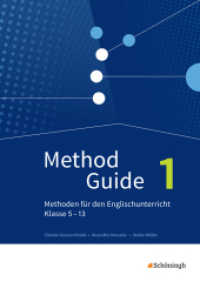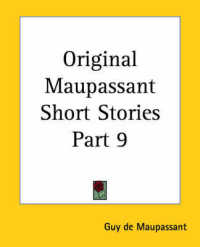- ホーム
- > 洋書
- > 英文書
- > Politics / International Relations
Full Description
This book explores a mode of democracy that is culturally relevant and socially practicable in the contemporary pluralistic context of historically Confucian East Asian societies, by critically engaging with the two most dominant theories of Confucian democracy - Confucian communitarianism and meritocratic elitism. The book constructs a mode of public reason (and reasoning) that is morally palatable to East Asians who are still saturated in Confucian customs by reappropriating Confucian familialism and using this perspective to theorize on Confucian democratic welfarism and political meritocracy. It then applies the theory of Confucian democracy to South Korea, arguably the most Confucianized society in East Asia, and examines the theory's practicality in Korea's increasingly individualized, pluralized, and multicultural society by looking at cases of freedom of expression, freedom of association, insult law, and immigration policy.
Contents
Part I. Beyond Thick Confucian Communitarianism and Meritocratic Elitism: 1. The Confucian social self and its discontent; 2. Toward civil Confucianism; 3. Against meritocratic elitism; Part II. A Pluralist Reconstruction of Confucian Democracy: 4. Value pluralism and Confucian democratic civil society; 5. Confucian familialism and public reasoning; 6. In defense of Confucian democratic welfarism; 7. Rethinking political meritocracy: selection plus two; Part III. Paving an Exemplary Path: The Korean Case: 8. Motivating and legitimating Confucian democracy: the politics of Chŏng; 9. Public reason and the liberalism of human rights; 10. Confucian civility and expressive liberty; 11. Confucianizing multiculturalism.







